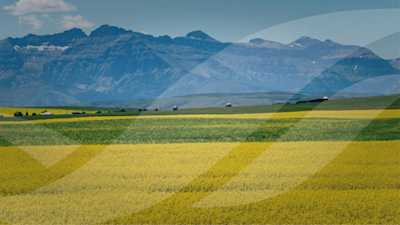Transferring Land and Income Taxes – know the rules to avoid extra costs

A farm’s location is the primary driver for how land transfers, and relevant taxes, affect producers across Canada. Here are six key Canada-wide points to keep in mind with land transfer taxes:
1. Have a plan
Have a strong, clear plan of what your overall goal is before you put any pen to legal paper with a formal land transfer.
Jon Ponath, a lawyer with Felesky Flynn who focuses on general tax planning and advising, including for farmers, says many circumstances go into decisions beyond simple finances.
“There’s lots of good tax incentives and rules for farmers to take advantage of and so they should be aware of what they are,” he says.
History of the land, its uses over time and different family considerations are all appropriate parts of a land transfer discussion. It’s important to know every aspect and have a solid plan.
2. Know the tax rules when gifting land
Generally, when a farmer is going to dispose of farmland, there is a seller and a buyer and a negotiated price that will dictate the taxes. In some cases, people will want to simply gift the land or sell it at a discount to family members to avoid tax. However, a Canada-wide tax rule says that when there’s a transfer of property to a person who is related to you, the taxes will be calculated on the fair market value, regardless of the actual selling price.
“These days, the price of farmland can be quite a lot,” says Ponath. “Even though you would not receive any cash, you’d potentially have a tax bill if you decided to gift land to a family member without proper planning.”
3. Know the exceptions to the rules
A farmer can transfer property to a spouse, which can be done on a rollover basis without adhering to the fair market valuation practice.
A farmer may also opt to transfer the property down to a child or grandchild on an intergenerational transfer if the farmland is qualifying property. So, if a farmer bought land for $1,000 an acre in 1985, they would be able to gift it to a child or grandchild. The farmer would be deemed to have disposed of the land at his or her cost - $1,000 an acre - rather than the land’s fair market value, which may be a higher amount.
4. Know if the farmland is “qualified?”
A key principle of land transfers is knowing the history of the land – what it was used for, by who and for how long.
Farmland can qualify for an intergenerational rollover if used principally in a farming business for more than half of the years of ownership. The farming business must also be one in which the owner, the owner’s spouse, their parents, child or grandchild are actively engaged in. That means leasing farmland to be farmed by someone else is not considered a farm business.
5. Start now
Farmers preparing a succession plan that includes a land transfer to a child, grandchild or third party, should immediately begin to give the proper attention and time this important process deserves. Understanding the tax rules relating to the transfer of farmland is essential to ensure a smooth process where there are no unnecessary penalizations. Consult with your tax or legal team to understand the best course of action for you and your farm.
6. Rules differ across the country
Even though income tax rules are Canada-wide, there are provincial nuances to all tax rules, including transferring land. For example, land transfer taxes and fees are applied differently in each province. Be sure to consult with your legal team and find out the rules, so you’re operating legally and being mindful of unnecessary taxation.
Conversations with your accountant or tax lawyer will give a clear understanding of where you could save money and how to properly execute a land transfer. Ponath encourages farmers to have those conversations today and be an active participant in this important process.
“Farmers have several advantageous taxation rules in Canada. Take active steps to make sure that you qualify for them because they can be very valuable and useful for any sort of succession planning or sale planning of farming assets,” he says.
Find resources and tools for any stage of the planning process

